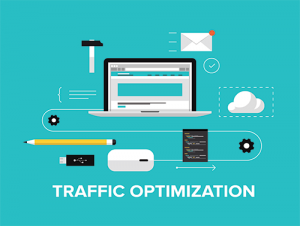So What Makes Up Google’s Ranking Algorithm?
Ranking highly in Google’s search results is considered the Holy Grail for marketers and website owners hoping to generate organic traffic from non-paid sources.
While of course there is always a cost to getting your pages in a position to get seen on Page One of Google, it is a very large piece of the traffic pie, and not to be dismissed.
So how do we know what is a part of the algorithm and what isn’t?
You’re right: it’s a closely-guarded secret at Google, but empirical evidence using all the frequent updates Google is fond of foisting upon us, (Pandas, Hummingbirds, and Penguins) has left clues that are valuable in deciphering what works and what does not.
What follows are 13 ranking factors that are no doubt important to the equation. We know there are well more than 200 in all, so this list is by no means exhaustive, but it will give you a good place to start!
13 Ranking Factors for Google Search
Keyword in page title tag – This one is still very important, and helps Google determine exactly what your page is about.
Length of content – Tests are showing that longer form content, between 1000-2000 words is winning spots on Google Page One far more than any other, particularly if that content is rich in LSI and related content.
Page loading speed – A huge factor, both for search engines and visitors, as studies are showing that we now sport an attention span of 8 seconds, 1 second less than a goldfish. So, if you page loads slowly…
Keyword in URL – If at all possible, it’s a good thing to have your primary keyword for the page in the URL.
Video and Images – Videos and images tend to keep visitors on your page longer, which translates to better rankings. Especially true if you have YouTube videos there.
Outbound authority links – Linking to authority sites in your market is a good sign to Google. Domain Trust and Trustrank – Closely related to the above point is Trustrank, measured by looking at the reputation of the sites linking to you.
TOS and Privacy Pages – Making sure you have these in place it goes a long way toward Google seeing yours as a viable entity.
Contextual links – Links in the body of your content carry far more weight than in other places on your page, such as the sidebar or footer, no matter who they’re from.
A natural link profile – A link profile that’s grown naturally, and not filled with high PR links all sporting the same anchor text.
Social signals – There’s little doubt now that Google considers social signals when determining where to rank your page. Social is here to stay.
Page over-optimization – Making too great an effort to sculpt your own page rank by over-optimizing your pages can have a detrimental effect.
Too many ads – Having an abundance of ads that lead offsite to affiliate offers and other products is a no-no, especially above the fold on your home page.
Trackback from your site.

